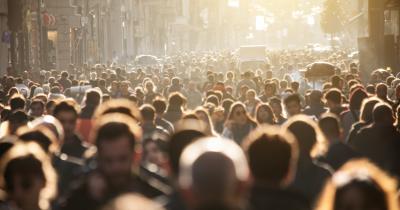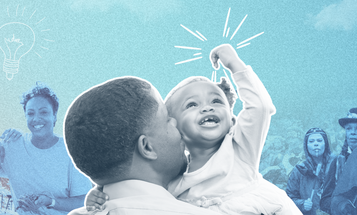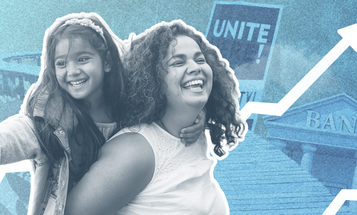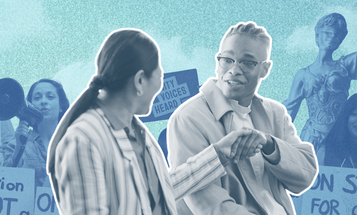
Why the Most Educated Americans Vote Democratic
Education tends to increase one's exposure to different viewpoints and kinds of people, fostering tolerance — a key basis for social liberalism.

Well, it happened again: As in 2008, Barack Obama won those voters with a post-graduate degree by a huge margin on Tuesday – 13 points. That's smaller than the 18-point margin that Obama achieved in 2008, but still substantial.
Why do the most educated Americans vote Democratic?
The most familiar reason is that these voters tend to be more liberal on social issues, and Democrats speak to those views. For example, surveys have found that college educated older Americans are far more likely to support gay marriage than those without a college degree. Likewise, college graduates are far more likely to support abortion rights than those with only a high school degree.
In turn, though, this raises the question of exactly why super educated voters are more liberal on social issues? The answer is intuitive: Education tends to increase one's exposure to different viewpoints and kinds of people, fostering tolerance – a key basis for social liberalism. In contrast, less educated voters – according to research – are more likely to embrace intolerant, authoritarian values when it comes to regulating social behavior and, in addition, are more likely to be distrustful of those who are different than they are.
Thus, not surprisingly, white non-college educated people living in rural areas or small towns tend to the most socially conservative voters in America – and are a core pillar of the GOP base. Like McCain, Romney won these groups by huge margins.
But social liberalism isn't the only reason that highly educated voters favor Democrats. Many of these voters believe that government has an important role to play in managing the economy and making key investments in the nation's future. President Obama connects with these voters when he talks about the need to improve infrastructure, invest more in education, bolster spending on scientific research, and develop renewable energy sources.
Again, though, why do educated voters believe in this kind of role for government? The answer, broadly, is that those with post-graduate degrees are more likely to understand the complex and interdependent nature of a modern economy, and the way that prosperity is dependent on factors like an educated work force, good transit systems, and new scientific breakthroughs.
As well, some slice of the very educated have seen or benefited from government investments personally — for example, doctors participating in research funded by the National Institutes for Health or techies who know the important role that government played in creating the Internet or lawyers who zip back and forth along the "Acela Corridor" and envy the faster trains in Europe and Asia.
What's particularly striking is that President Obama won the educated vote even though these Americans tend to have higher incomes and are likely to pay higher taxes during a second Obama term. Yet that turns out to be no big deal for many post-grads who recognize that higher taxes are necessary to afford key investments and restore fiscal balance.
Last point: The most educated Americans tend to have grown up, and live in, culturally liberal metropolitan areas, where the knowledge economy jobs are. And where you live affects what you believe.
Much has been made this year of the Democratic advantage among Latino voters. But having the nation's most educated people in your corner is pretty important, too.




